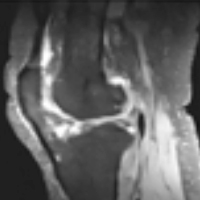Deep Learning for Medical Imaging (MRI)
Autumn 2017
Master Semester Project
Master Diploma
Project: 00337

Accelerated MRI allows important reduction of the acquisition time (~5 times faster). The killer application for accelerated MRI is dynamic 3D cardiac MRI, as the shortening of the acquisition time reduces the impact of undesirable motion artifacts. The most recent accelerated MRI methods rely on various optimization methods, which are unfortunately computationally demanding and require tuning of some optimization parameters. Nowadays, convolutional neural network (CNN) are very popular solvers for various inverse problems. The performance and speed of reconstruction by CNN are noticeably improved over conventional iterative optimization methods. Yet, there still lacks CNN approaches for reconstruction of accelerated MRI, especially for multi-dimensional data. In this project, the student's task will be to explore a CNN-based reconstruction method for accelerated MRI. The implementation will take advantage of the MatConvNet toolbox of MATLAB or Caffe toolbox of C/Python (preferred).
- Supervisors
- Kyong Jin, kyong.jin@epfl.ch, 021 693 5189, BM 4.135
- Michael Unser, michael.unser@epfl.ch, 021 693 51 75, BM 4.136